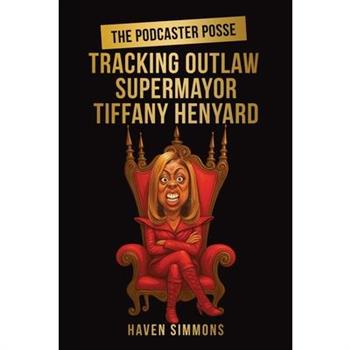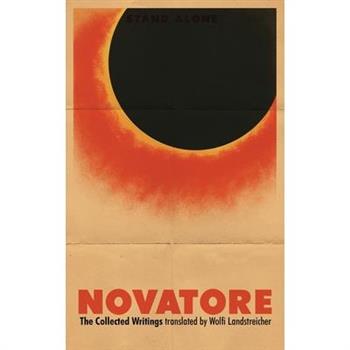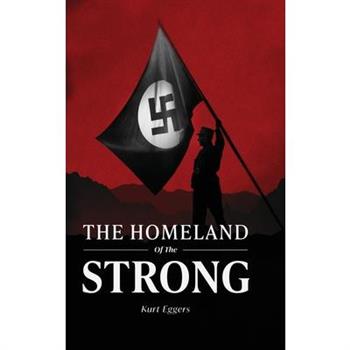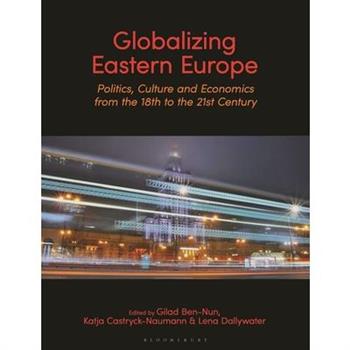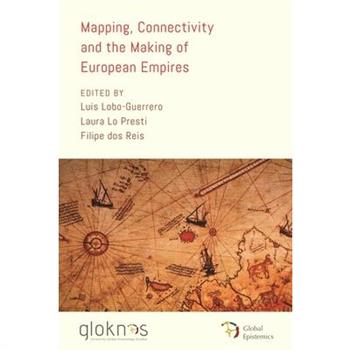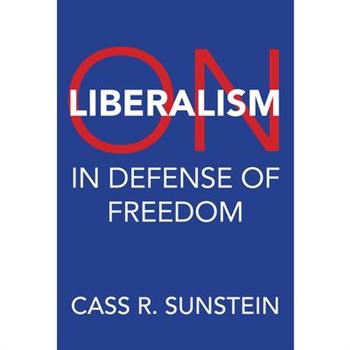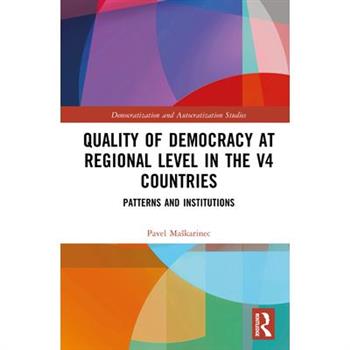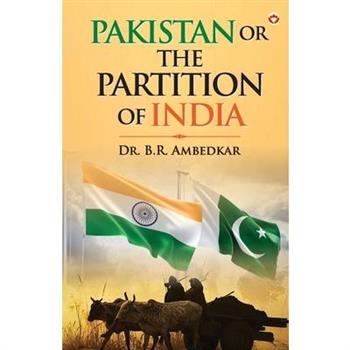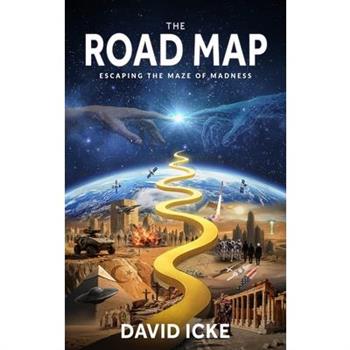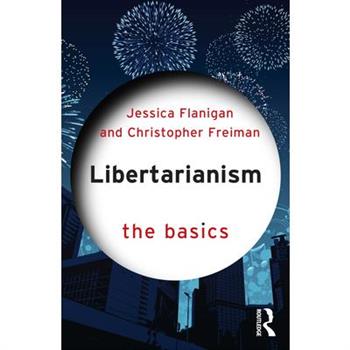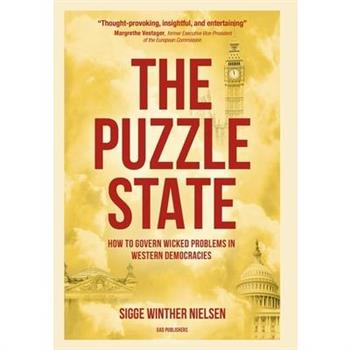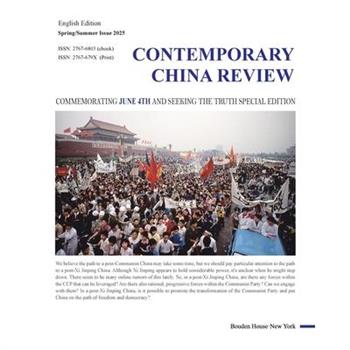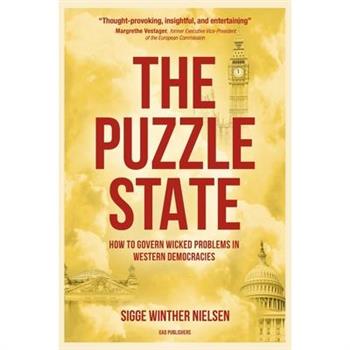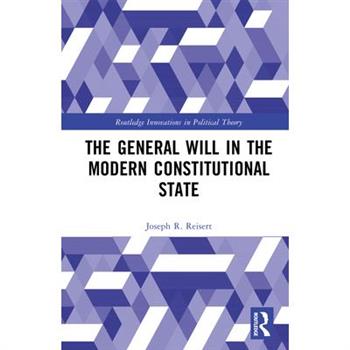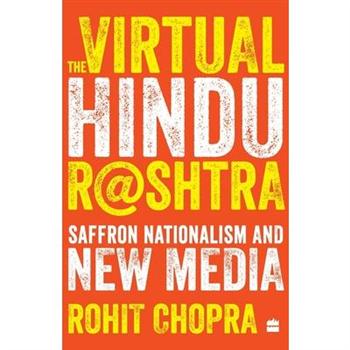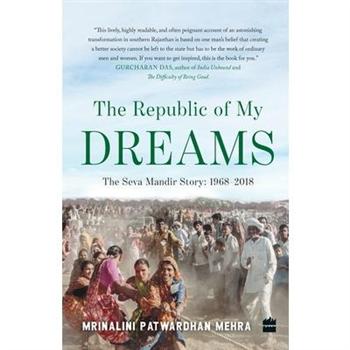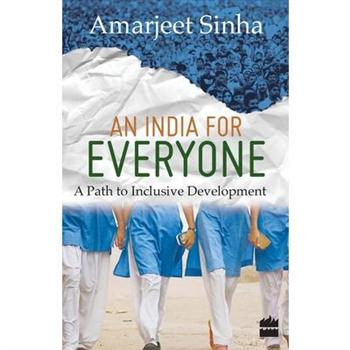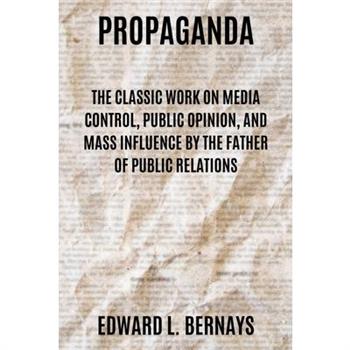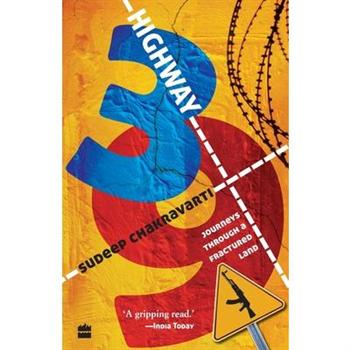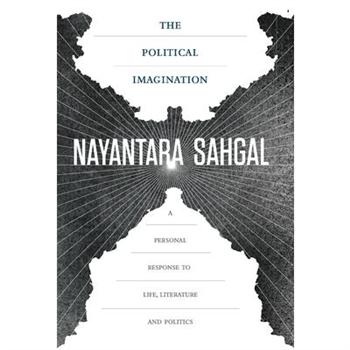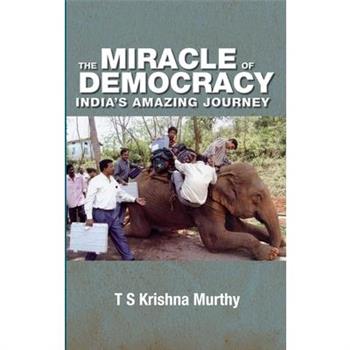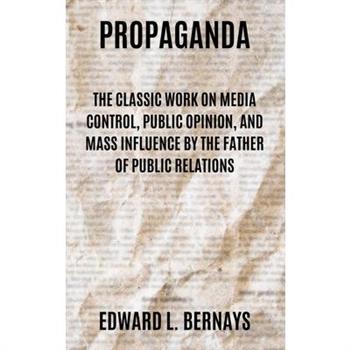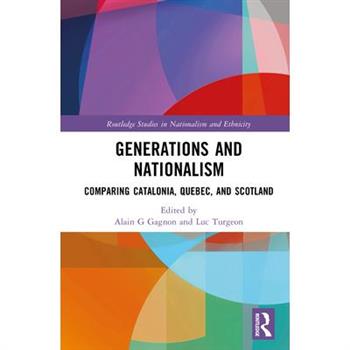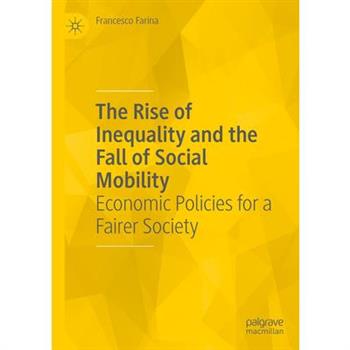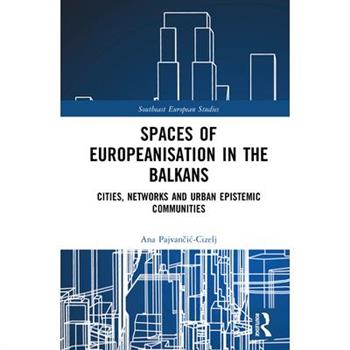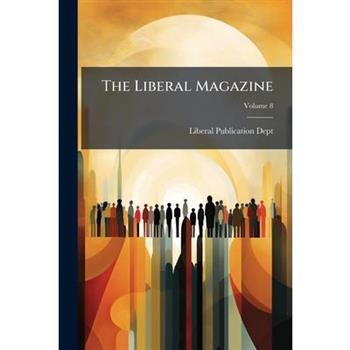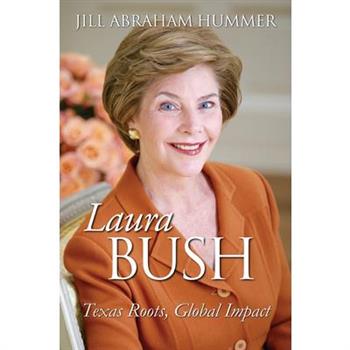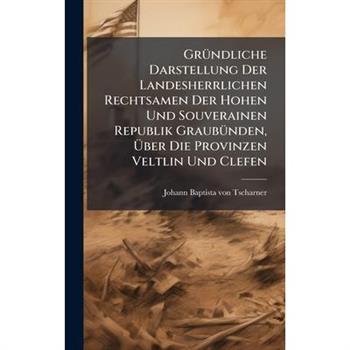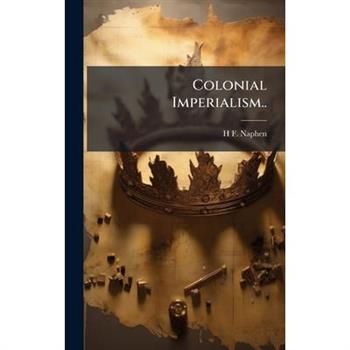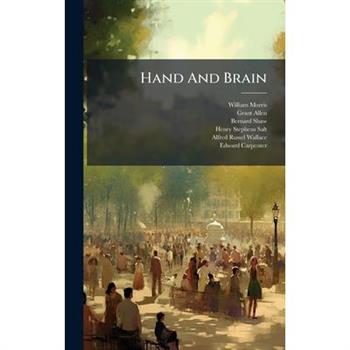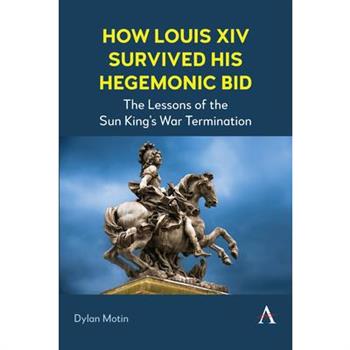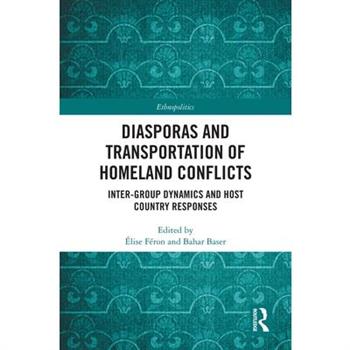The Podcaster Posse
In the corrupt corridors of Dolton, Illinois, one woman's greed and narcissism spiraled into a four-year reign of terror that would captivate the nation. Tiffany "Supermayor" Henyard wielded unprecedented power as both mayor and township supervisor, earning nearly $300,000 annually while her community crumbled under debt and dysfunction. But this isn't just another political corruption story. This is the tale of how ordinary citizens armed with smartphones and YouTube channels became the watchdogs that traditional media failed to be. Meet the "Podcaster Posse" - independent content creators like "Cooking with Frank," "Hannibal Is Hungry," and "Just Doing Nails" who used wit, persistence, and social media savvy to expose Henyard's alleged crimes to a worldwide audience. From Las Vegas junkets funded by taxpayers to public brawls in government meetings, from sexual assault cover-ups to million-dollar ice rinks named after her daughter, Henyard's story reads like fiction but delivers the devastating truth about unchecked power in America's heartland. When FBI investigations stalled and state officials turned a blind eye, these digital detectives kept digging, broadcasting, and building the pressure that ultimately brought down one of America's most brazen political criminals. "The Podcaster Posse" reveals how grassroots journalism in the internet age can succeed where traditional institutions fail, offering both a cautionary tale about political corruption and an inspiring example of citizen activism in action.
Novatore
In the chaos of post-World War I Italy, Renzo Novatore (1890-1922) emerged as a poet and philosopher of uncompromising individualist anarchism. Inspired by Nietzsche, Stirner, and Wilde, he rejected church, state, and rising fascism, advocating for the sovereignty of the individual. His writings, crafted while a fugitive facing execution, blend lyrical nihilism with a fierce celebration of personal freedom. Novatore lived his defiance until his death in a 1922 shootout with authorities at age 32.This collection, translated by Wolfi Landstreicher, includes Novatore's key works-"Toward the Creative Nothing," "My Iconoclastic Individualism," "Black Flags," and "Cry of Rebellion." Reissued in 2025 by the Union of Egoists' Stand Alone project, it features a fresh design, Landstreicher's insightful introduction, and all original 2012 content. Novatore's voice resonates with readers drawn to radical thought, anarchism, and the unbound self.
The Homeland of the Strong
Homeland of the Strong is a soldier's testament, a firebrand of philosophy written in the language of struggle. Kurt Eggers offers no comfort - he tears away illusions. He declares war on weakness, falsehood, and the hollow religions that robbed Europe of its soul. He strikes at the false gods that enslave men, the weakness that poisons nations, and the hollow peace that drains life of its meaning.In their place, Eggers sets before you a vision of the homeland as sacred ground - where blood and sacrifice forge strength, where culture becomes creation instead of decay, and where man seizes his destiny with his own will. This is a book that dares to ask the forbidden questions: Where is God? What is the meaning of weakness? What does it mean to live and die for a homeland worthy of the strong?Every page burns with the conviction that life must be lived in strength - or not at all.
The Delivery Gap
Sometimes, government has to build something big. Really big. A high-speed railway network, a fleet of nuclear submarines, an IT system big enough for the health records of every person in the country. But Britain has a woeful record of delivering projects of this scale. They are either late, over budget, deliver less than promised - or all three. Some are never completed at all. What is going wrong? In the wake of the cancellation of HS2, Jonathan Simcock, former Major Projects Director of the Office of Government Commerce, provides answers. This eye-opening text draws on testimony from the Ministers, officials and project managers who have tried, and mostly failed, to deliver the country's biggest projects. To face up to its challenges - productivity, growth, national security, and the changing climate - Britain needs huge publicly funded investment. So how do we close the Delivery Gap?
Voters' Perceptions of Party Brands
In order to cast a satisfying vote, understand politics, or otherwise participate in political discourse or processes, voters must have some idea of what policies parties are pursuing and, more generally, 'who goes with whom.' This Element aims to both advance the study of how voters formulate and update their perceptions of party brands and persuade our colleagues to join us in studying these processes. To make this endeavor more enticing, but no less rigorous, the authors make three contributions to this emerging field of study: presenting a framework for building and interrogating theoretical arguments, aggregating a large, comprehensive data archive, and recommending a parsimonious strategy for statistical analysis. In the process, they provide a definition for voters' perceptions of party brands and an analytical schema to study them, attempt to contextualize and rationalize some competing findings in the existing literature, and derive and test several new hypotheses.
Globalizing Eastern Europe
For far too long, views of Eastern Europe as a negligible and peripheral region have shaped popular perceptions of this part of the world. Presenting new research, Globalizing Eastern Europe: Politics, Culture and Economics from the 18th to the 21st Century offers refreshing arguments to counter such misconceptions. Global politics and international law have been profoundly shaped by the experiences and expertise that emanated from this region. Migration to and from Eastern Europe, has fostered deep ties with neighbouring and distant societies, as have this area's literature and music. The importance of its agricultural development has reverberated in the global economy. This volume recasts Eastern Europe as a global region. It shows how people from this part of the world shaped the 'global', and how in turn, the 'global' shaped them. Authors from a range of disciplines, chart century-long traditions of entanglements and contemporary interactions. In doing so, this book further enriches the perennial debates regarding this region's spatial boundaries.
Mapping, Connectivity, and the Making of European Empires
This volume explores how maps can be approached to understand the making of European empires.
On Liberalism
A much-needed defense of liberalism--what it is, why it is under threat, and why we need it more than ever--from one of our most important political thinkers today. More than at any time since World War II, liberalism is under pressure, even siege. On the right, some have given up on liberalism. They hold it responsible for the collapse of the family and traditional values, rampant criminality, disrespect for authority, and widespread immorality. On the left, some are turning their backs on liberalism. They think that it lacks the resources to handle the problems posed by entrenched inequalities, racism, sexism, corporate power, and environmental degradation. But those opposed to liberalism do not depict it accurately; they offer a caricature, and they neglect its history. In On Liberalism, former advisor to Presidents Obama and Biden and New York Times-bestselling author Cass Sunstein offers a timely and clear understanding of liberalism--of its core commitments, of its breadth, of its internal debates, of its evolving character, of its promise--and why we need it more than ever. He also shows how and why liberalism has been, and should be, appealing to both the left and the right. The book begins with a manifesto on behalf of liberalism, and then goes on to explore the central idea of "experiments of living," to which a liberal constitutional order gives pride of place. From there, it discusses John Stuart Mill and Friedrich Hayek, defining liberal thinkers; the rule of law as liberals understand it; freedom of speech (including the place of lies and falsehoods within that freedom); free markets, economic liberty, and regulation; Franklin Delano Roosevelt's Second Bill of Rights, with its social and economic guarantees; and finally, the concept of opportunity. Never more urgently needed, On Liberalism moves the conversation well beyond the reductive and inflammatory political sound bites of our moment and advances a compelling argument on behalf of liberalism as the foundation of freedom and self-government.
Quality of Democracy at Regional Level in the V4 Countries
This book systematically examines regional-level qualities of democracy - representation, participation, and competition - in four countries of Central and Eastern Europe between 1994 and 2022 - from the establishment of regional self-government to present day.
Pakistan Or The Partition Of India
The Muslim Leagued Resolution on Pakistan has called forth different reactions. There are some who look upon it as a case of political measles to which a people in the infancy of their conscious unity and power are very liable. Others have taken it as a permanent frame of the Muslim mind and not merely a passing phase and have in consequence been greatly perturbed.My position in this behalf is definite, if not singular. I do not think the demand for Pakistan is the result of mere political distemper, which will pass away with the efflux of time. As I read the situation, it seems to me that it is a characteristic in the biological sense of the term, which the Muslim body politic has developed in the same manner as an organism develops a characteristic. Whether it will survive or not, in the process of natural selection, must depend upon the forces that may become operative in the struggle for existence between Hindus and Musalmans. I am not staggered by Pakistan; I am not indignant about it; nor do I believe that it can be smashed by shooting into it similes and metaphors. Those who believe in shooting it by similes should remember that nonsense does not cease to be nonsense because it is put in. rhyme, and that a metaphor is no argument though it be sometimes the gunpowder to drive one home and imbed it in memory. I believe that it would be neither wise nor possible to reject summarily a scheme if it has behind it the sentiment, if not the passionate support, of 90 p.c. Muslims of India. I have no doubt that the only proper attitude to Pakistan is to study it in all its aspects, to understand its implications and to form an intelligent judgement about it.
The Collapse of Global Liberalism
In the 1990s, a vision emerged of a frictionless world of globalization in which the West would become ever richer on the basis of a tech-based service economy, all underpinned by a rules-based liberal international order. It became the basis for the mainstream politics of centre-left and right. Philip Pilkington argues that this vision was always delusional and is now dying. It is based on a doctrinaire and unrealistic form of liberalism and has given rise to hollowed-out financialised economies and disintegrating societies that can barely even reproduce their population or meet their energy needs. The US and UK find themselves ill-equipped to compete with China and other non-liberal states within an emerging post-liberal order in which what really matters is industrial capacity, realpolitik and military strength. Only by abandoning our liberal delusions and advancing our own brand of hard-headed post-liberalism can the West survive. No clear-sighted observer of contemporary geopolitics can afford to miss this bracing diagnosis of the West's malaise and bold agenda for renewal.
The Road Map
David Icke's 1998 book The Biggest Secret was dubbed the Rosetta Stone of conspiracy research for connecting the dots that allowed a much bigger picture to be seen. The Rosetta Stone, discovered in 1799, revealed the language codes that allowed Egyptian hieroglyphics to be understood. Now The Road Map presents a massive extension and expansion with the benefit of a further three decades of full-time research. The depth and breadth of this book is astonishing as it reveals both the interdimensional panorama of the conspiracy for human control - and how we can break those chains to walk the road to freedom. Ever more people are looking at the Maze of Madness called 'human life' and asking the BIG questions: What is it all about? Who are we? Where are we? Why is the world as it is? BIG questions lead to BIG answers and David Icke has been asking them for much of his life and especially since his gigantic awakening after 1990. The Road Map is the latest instalment in his incredible journey to first expose the Maze and then the way out. Only a relative handful could see the conspiracy for human enslavement when Icke began as a figure of public ridicule, but now the mist is clearing for phenomenal numbers of people who see that the world is nothing like they have been led all their lives to believe that it is. But how does it all fit together? Why? To what end? The Road Map provides the answers and for this reason has to be among the most important and reality-transforming books ever written.
ABC of Anarchism
Our social institutions are founded on certain ideas and as long as these are generally believed, the institutions built on them are safe. Government remains strong because people think political authority and legal compulsion necessary. Capitalism will continue as long as such an economic system is considered adequate and just. The weakening of the ideas which support the evil and oppressive present-day conditions means the ultimate breakdown of government and capitalism. Progress consists of abolishing what man has outlived and substituting in its place a more suitable environment.
Trump Proverbs
It presents President Donald J. Trump as a person or vessel chosen by God alone for United States of America. I have taken the liberty to present his level of thinking, as amazing and wonderful and prominent. President Donald J. Trump has been taken through the Fire of life and nobody care about him, people in general and media had a complete Hatred for him and wanted him to lose and be put away in prison to root. But, he came forth as a Knight in Shining Armor! His God protected him and guided him to win the Election and made him President for the second time. And all of his enemies were amazed. The words in this book, are Proverbial and Historical of American history and many topics were covered, as though i was side by side with President Donald J. Trump and he agreeing with me as I wrote in his behalf. He is the Greatest Man on earth and the Greatest President ever lived.
Trump Proverbs
It presents President Donald J. Trump as a person or vessel chosen by God alone for United States of America. I have taken the liberty to present his level of thinking, as amazing and wonderful and prominent. President Donald J. Trump has been taken through the Fire of life and nobody care about him, people in general and media had a complete Hatred for him and wanted him to lose and be put away in prison to root. But, he came forth as a Knight in Shining Armor! His God protected him and guided him to win the Election and made him President for the second time. And all of his enemies were amazed. The words in this book, are Proverbial and Historical of American history and many topics were covered, as though i was side by side with President Donald J. Trump and he agreeing with me as I wrote in his behalf. He is the Greatest Man on earth and the Greatest President ever lived.
Libertarianism
Libertarianism: The Basics is an up-to-date and accessible introduction to libertarianism that breaks down abstract philosophical ideas in a fresh way.Flanigan and Freiman interweave a wide-ranging survey of different libertarian philosophical traditions, with a discussion of libertarian perspectives on various applied topics of contemporary interest. Chapters introduce readers to the major theoretical debates in libertarianism, illustrating these debates through real-world policy case studies that draw on contemporary issues concerning criminal justice reform, immigration policy, national security, the environment, and more.Ideal for teaching and appropriate for students at all levels, including high school, Libertarianism: The Basics will be the go-to text for anyone who is interested in learning more about political philosophy, applied ethics, philosophy, politics, economics, and public policy. The authors present arguments and ideas through a series of historical and contemporary cases, making the book suitable for all readers who want to learn about cutting-edge libertarian views on matters in both political philosophy and public policy.
The Puzzle State
The wicked problems of our time-climate change, migration, inequality, productivity, and mental health-remain stubbornly unresolved in Western democracies. It's time for a new way to puzzle. This book takes the reader on a journey from London to Berlin, and from Rome to Washington DC and Copenhagen, to discover why modern politics keeps breaking down. We're tackling twenty-first century problems with twentiethcentury quick fixes and nineteenth-century institutions. In search of answers, the author gate-crashes a Conservative party at an English estate, visits a stressed-out German minister at his Mallorcan holiday home, and listens in on power gossip in Washington DC's restaurant scene. The Puzzle State offers one of the most engaging and insightful analyses of Western democracies in recent years. Based on over 100 interviews with top political players, surveys conducted across five countries, and stories of high-profile policy failures, it uncovers a missing link in reform efforts: the absence of ongoing feedback loops between decision-makers and frontline practitioners in schools, hospitals, and companies. But there is a way forward. The author introduces the concept of the Puzzle State, which uses collective intelligence and AI to (re)connect politicians with the people implementing reforms on the ground. The Puzzle State tackles highprofile wicked problems and enables policies to adapt as they meet messy realities. No one holds all the pieces in the Puzzle State. The feedback loop must cut across all sectors-from civil society to corporations-just like solving a complex puzzle requires commitment, cooperation, and creativity.
Contemporary China Review (2025 Spring / Summer Issue),Volume 7
The current English-language edition of Contemporary China Review centers on the theme of "How China Recalibrates Itself at the Intersection of Institutions and Ethics," and is organized into sections such as "Chinese Scholars' View," "Current Affairs," and "Book Review." The first section approaches the topic from the perspective of political systems and the international order, revisiting the historical echoes of America's "Open Door" policy and Wilsonianism while engaging with issues of constitutionalism and the economy, party competition, and civil society, linking modern and contemporary history to today's governance dilemmas. "Current Affairs" blends documentary narrative with institutional analysis, focusing on the truth of June Fourth and transitional justice, the governance tactics of the pandemic, and the causes and consequences of the "White Paper" protests. It also features Bei Ming's memorial essay for Cheng Kai, highlighting the ethical choices and personal costs faced by journalists under political pressure. The "Book Review" section examines the intellectual trajectory of Xu Zhiyong's "citizens' faith" practice, and also reviews recent works such as The China Record and China's Game, offering a systematic critique of the continuities between the imperial tradition and the party-state system, the structural tensions between power and the market, and possible reform pathways. Entirely in English and aimed at an international readership, the issue combines rigorous historical research, careful argumentation, and engaging narrative, seeking to forge a communicable public language that bridges fact, thought, and moral judgment, and to serve as a cross-lingual reference and dialogue platform for academia, the media, and public policy debates.
The Puzzle State
The wicked problems of our time-climate change, migration, inequality, productivity, and mental health-remain stubbornly unresolved in Western democracies. It's time for a new way to puzzle. This book takes the reader on a journey from London to Berlin, and from Rome to Washington DC and Copenhagen, to discover why modern politics keeps breaking down. We're tackling twenty-first century problems with twentiethcentury quick fixes and nineteenth-century institutions. In search of answers, the author gate-crashes a Conservative party at an English estate, visits a stressed-out German minister at his Mallorcan holiday home, and listens in on power gossip in Washington DC's restaurant scene. The Puzzle State offers one of the most engaging and insightful analyses of Western democracies in recent years. Based on over 100 interviews with top political players, surveys conducted across five countries, and stories of high-profile policy failures, it uncovers a missing link in reform efforts: the absence of ongoing feedback loops between decision-makers and frontline practitioners in schools, hospitals, and companies. But there is a way forward. The author introduces the concept of the Puzzle State, which uses collective intelligence and AI to (re)connect politicians with the people implementing reforms on the ground. The Puzzle State tackles highprofile wicked problems and enables policies to adapt as they meet messy realities. No one holds all the pieces in the Puzzle State. The feedback loop must cut across all sectors-from civil society to corporations-just like solving a complex puzzle requires commitment, cooperation, and creativity.
The General Will in the Modern Constitutional State
In The General Will in the Modern Constitutional State, Joseph R. Reisert challenges standard interpretations of Rousseau, according to which his political theory either has nothing to offer the present but a radical critique or commends an illiberal, plebiscitary democracy. Reisert argues that the principles of political right Rousseau sets forth in The Social Contract are correct and that the political institutions of modern constitutional and democratic states substantially satisfy them.Rousseau's central normative commitments - to popular sovereignty, constitutional law, representative government, the rule of law, periodic elections, universal suffrage, and equal basic rights for all - correspond closely to our contemporary understanding of what political legitimacy requires. Taking seriously Rousseau's claim that a sort of contract lies at the foundation of every political society, Reisert offers a novel interpretation of willing a general will, arguing that the experience of formulating and acting upon a general will is as common as are the experiences of membership in a civic association and of undertaking any collective activity as a member of such an organization. Reisert expertly demonstrates that, when we recognize that a nation's true constitution is the content of the people's general will, we will be able to see how our political institutions (mostly) satisfy Rousseau's normative principles of political right, and we will also discover new perspectives on constitutional politics and constitutional interpretation.The General Will in the Modern Constitutional State will be of interest to those who study Rousseau's political thought, history of political thought, constitutionalism, and constitutional theory.
Postcoloniality and Statehood
This book traces the evolution of the postcolonial state and the social contract in Egypt. It problematises two of the most ubiquitous and contentious terms: democratisation and development, within the context of Egypt and the larger Global South.
Anarchy
Many think 'anarchy' means confusion, disorder, and chaos, but Malatesta sets the record straight. Errico Malatesta was a warm-hearted anarchist of widespread reputation and influence, who said that he considered Anarchy the best thing he had ever written. L'Anarchia, written in 1891, appeared in English translation in Freedom (September 1891--June 1892) and was reprinted as a pamphlet by Freedom Press in 1892. This now classic work has been in continual demand ever since. This is the theory; but to be sound the theory should be based upon an explanation of facts. We know well how in social economy theories are too often invented to justify facts, that is, to defend privilege and cause it to be accepted tranquilly by those who are its victims. Let us here look at the facts themselves. Translated from the original Italian and with an introduction by Vernon Richards.
Political and Incorrect
Tavleen Singh began writing her weekly column in The Indian Express in 1987. It was history as First draft, written not in hindsight but as events unfolded. The column captured the country's mood every week. Debating the latest development with a reporter's eye and a columnist's insistence, Singh called out various political dispensations on their ill-conceived schemes and often too their scheming. Between 1987 and 2007, much as India changed, it also remained the same. The persistence of malnutrition, the systemic slackness in primary education, unsafe water and insufficient health care - Singh stayed with these matters even as they went out of fashion when liberalized, urbanizing India made rapid strides. In Political and Incorrect, Tavleen Singh brings the politician and the bureaucrat to the page with the same mix of wise, wry scrutiny as the terrible options they foist on India's poorest people. The shambles of infrastructure are described with the same vigour as a raucous political rally. Through Singh's clear lens, the aloof, arrogant leader is as familiar as the man next door, and the issues at stake accessible and clear. This expansive compendium captures neatly twenty years of India as they unfolded.
The Virtual Hindu Rashtra
From websites devoted to battling a 'Left-liberal' media ecosystem to the formidable internet army of Hindu Right volunteers, from online narratives of Hindu valour to Narendra Modi's impeccably-managed social media presence, new media is an integral part of present-day Hindu nationalism.The Virtual Hindu Rashtra examines the relationship of Hindu nationalism and new media across a range of internet spaces, including Twitter trends in support of the Bharatiya Janata Party's government policies, Facebook pages dedicated to the cultural project of establishing a Hindu state, and WhatsApp groups circulating jokes about Modi's critics. Situating online Hindu nationalism in a historical context, this book analyses the movement with respect to national and global political trends, such as the rise of authoritarian political personalities worldwide and the phenomenon of fake news. The book concludes with a reflection on the implications of the relationship of Hindu nationalism and new media for democracy in India.
The Republic of My Dreams
The story of Seva Mandir started in the erstwhile royal state of Mewar, Rajasthan. A promising aristocrat, Dr Mohan Singh Mehta, had to deal with the tragic death of his young wife at the age of thirty. Unable to move on, he met a farmer who told him, 'You are a man who can help us poor people.' Thus the seeds of this inspiring NGO were sown. This book is a commemoration of fifty years of Seva Mandir, a brave experiment to create a sense of ethical action within every individual in order to create a healthy society. In this, some of the people whose lives the organization has touched - villagers, volunteers, donors and administrators - tell us their story and how their lives have changed because of it. The Republic of My Dreams is a tribute to the triumph of the human spirit.
Ayodhya
22 December 1949: A conspiracy that began with the assassination of Mahatma Gandhi culminated in the execution of the Ayodhya strategy. Late that night, a little-known sadhu, Abhiram Das, and his followers entered the Babri Masjid and planted an idol of Rama inside it. While it is known that the Hindu Mahasabha had a role in placing the idol in the mosque, the larger plot and the chain of events that led to that act have never been subject to rigorous scrutiny. Krishna Jha and Dhirendra K. Jha bring together the disparate threads of the buried narrative for the first time. Ayodhya: The Dark Night uncovers, in vivid detail, what really transpired on the fateful night that was to leave a permanent scar on the Indian polity.
An India For Everyone- A Path to Inclusive Development
India is the world's third largest economy in terms of purchasing power parity. For a country that had become mired in a mindset of being an almost-ran, it is quite an achievement. Alongside, however, are some startling statistics. It has, for instance, the largest number of poor people in a single country - an estimated 300 million below the poverty line. Literacy remains at an appalling low, with 273 million illiterates in 2011, making it the country with the largest illiterate population on earth. On the health front too, India is home to 40 per cent of the world's undernourished children. One-fourth of the world's childbirth deaths and one-fifth of its infant deaths take place in India. In An India for Everyone: A Guide to Inclusive Development, Amarjeet Sinha, an education expert who has played a major role in designing the Sarva Shiksha Abhiyan and the National Rural Health Mission, offers a companion dream to the economic one. An India that has truly been able to provide a decent sustenance to its billion plus people. He examines key issues of under-nutrition, health care, education and social security. Crucial to providing these is reforming the public recruitment system, decentralizing authority and increasing accountability among government servants, which will help bring about better public systems in the country. Going beyond politics and economic reforms, this book addresses the issues that truly form the bedrock of where we want to be.
Propaganda
The Original Blueprint for Media Control and Mass PersuasionWritten in 1928 by Edward L. Bernays, the "father of public relations" and nephew of Sigmund Freud, Propaganda remains a chillingly relevant exploration of how public opinion is shaped-and manipulated-by media, business, and government.This concise but powerful book explains how the invisible architects of society use language, emotion, and imagery to mold everything from politics to purchasing habits.Why this book still matters today: Reveals the origins of modern marketing and political spinExplains the psychology behind news cycles and media framingEssential for students of PR, media, politics, and behavioral scienceCited by Noam Chomsky, Adam Curtis, and countless othersWhether you're an academic, marketer, activist, or simply a curious reader, Propaganda is an essential guide to understanding the power structures that shape our world.
Highway 39
In Highway 39: Journeys through a Fractured Land, Sudeep Chakravarti attempts to unravel the brutal history of Nagaland and Manipur, their violent and restive present, and their uncertain and yet desperately hopeful future, as he travels along Dimapur, Kohima, Senapati, Imphal, Thoubal, and their hinterlands-all touch points of brutalized aspiration, identity, conflict and tragedy. These are the lands that nurture deadly acronyms-like AFSPA, an act of Parliament that with impunity hurts and kills citizens. Lands where militants not only battle the Indian government but also each other in a frenzy of ego, politics and survival, and enforce 'parallel' administrations. Sudeep Chakravarti's journey introduces the reader to stories that chill, anger and offer uneasy reflection. A fourteen-year-old Naga girl who dies resisting a soldier's attempt to rape her-and is now an icon. An eleven-year-old girl abducted by police in Manipur because they want to trap her parents. A faked encounter in Imphal that kills a former rebel, and also an innocent lady and her unborn child. A family in Kohima still trying to come to terms with the death of their youngest child in a mortar attack. Chakravarti also interacts with security and military officials, senior bureaucrats, top rebel leaders, and human rights and social activists, to paint a terrifying picture of a society and a people brought repeatedly to breakdown through years of political conceit and deceit, and stress and conflict. In prose suffused with a rare understanding of the region and its people, and with remarkable insight into its convoluted politics, Highway 39 brings into focus a region long neglected and often forgotten by Mainland India, a region surrounded by nations historically inimical to India-and yet, which offer a dream gateway to the markets of East Asia. A region India can continue to ignore only at the peril of the very idea of India.
The Political Imagination
Through the last five decades, Nayantara Sahgal has constantly responded to the changes that enveloped India and the world through her wide-ranging works of fiction and non-fiction. This book collects her writings and lectures on subjects ranging from literature and the arts to international relations and imperialism, written through some of Indias most turbulent phases- Independence, the Emergency, globalization, terrorism. Her astute social commentary is laced with personal wisdom that comes from first-hand knowledge of Indian politics and diplomacy. Known for her refusal to compromise with attempts to subvert modern India's democratic and multicultural tradition, Sahgal has watched some of Indias most historic moments unfold in her own backyard and has always appraised the situation with a critical eye and analytical acumen. The Political Imagination draws from Sahgals rich body of work and includes letters and commendations written to her that have never been published before. Combining public history with personal reflections, Sahgal reveals the politics of her own imagination in this collection of her most culturally insightful and socially conscious writings.
Miracle Of Democracy
A first-hand account of the working of Indian democracy, this book is the result of years of experience at the helm of electoral affairs in India. The author takes us through the ups and downs of a distinguished career, which culminated in his posting to the Election Commission in 2000. It is here that he comes into his own: with honesty and a deep understanding of the way people and governments work, he shares with us his assessment of the parliamentary system in India, its strengths and weaknesses.The book traces the history of Indian democracy, from the very first general elections of 1952 to the present era of coalition politics. Using examples from other international systems of governance, Krishna Murthy examines the flaws as well as the amazing resilience of the political system in India, ultimately reinforcing the belief that the road to India's development is definitely through the ballot box.
Reimagining Pakistan
Salman Rushdie once described Pakistan as a 'poorly imagined country'. Indeed, Pakistan has meant different things to different people since its birth seventy years ago. Armed with nuclear weapons and dominated by the military and militants, it is variously described around the world as 'dangerous', 'unstable', 'a terrorist incubator' and 'the land of the intolerant'. Much of Pakistan's dysfunction is attributable to an ideology tied to religion and to hostility with the country out of which it was carved out -- India. But 95 per cent of Pakistan's 210 million people were born after Partition, as Pakistanis, and cannot easily give up on their home. In his new book, Husain Haqqani, one of the most important commentators on Pakistan in the world today, calls for a bold re-conceptualization of the country. Reimagining Pakistan offers a candid discussion of Pakistan's origins and its current failings, with suggestions for reconsidering its ideology, and identifies a national purpose greater than the rivalry with India.
Propaganda
The Original Blueprint for Media Control and Mass PersuasionWritten in 1928 by Edward L. Bernays, the "father of public relations" and nephew of Sigmund Freud, Propaganda remains a chillingly relevant exploration of how public opinion is shaped-and manipulated-by media, business, and government.This concise but powerful book explains how the invisible architects of society use language, emotion, and imagery to mold everything from politics to purchasing habits.Why this book still matters today: Reveals the origins of modern marketing and political spinExplains the psychology behind news cycles and media framingEssential for students of PR, media, politics, and behavioral scienceCited by Noam Chomsky, Adam Curtis, and countless othersWhether you're an academic, marketer, activist, or simply a curious reader, Propaganda is an essential guide to understanding the power structures that shape our world.
Traces of Terrorism, II
In this second volume of Traces of Terrorism, the focus is on Jihadist organizations such as al-Qaeda and Islamic State. The volume begins with 9/11, al-Qaeda's attacks on the World Trade Center in New York and the Pentagon in Washington. The Global War on Terrorism that followed in response is described in detail, as is the hunt for Osama bin Laden and his killing by US Navy SEALS. It also covers terrorist organizations operating in Africa and Asia, as well as so-called franchise groups, radicalized sympathizers who carried out attacks in the name of al-Qaeda. The book concludes with terrorism in the US in recent years and the growing threat of domestic
Generations and Nationalism
Generations and Nationalism breaks new ground by placing the impact of generation and generational changes at the forefront of an investigation on the transformation of nationalist movements and the evolution of support for independence in Catalonia, Quebec and Scotland.
The Militarisation of British Democracy
This book argues that the pursuit of war and the further militarisation of British democracy since 9/11 has led the UK into a permanent state of war and made the nation particularly prone to military aggression rather than managing conflict through negotiation. Within NATO, Britain is among the most belligerent nations ratcheting up military expenditure and the use of violence to manage conflict. The militarisation of British (and Western) states and authoritarian values have been manufactured to provide domestic support for permanent war. Failure in Iraq, Afghanistan, Libya, Syria, Ukraine and the Middle East has not reduced confidence in the use of military aggression as NATO seeks confrontation in a 'New Cold War' between 'democracy' and 'authoritarian' Russia and China. Paradoxically, Britain and the West's militarisation proposes to destroy democracy in order to save it, and to provide authoritarian states with the excuse to become more authoritarian.
Contemporary Islamist Opposition in Morocco
This book offers an in-depth and yet-unexplored analysis of the evolution and actions of Moroccan Islamist association Justice and Spirituality (al-Adl wa-l-Ihsane). By examining its mobilisation structure, the book enhances the understanding of Islamism as an oppositional force in non-democratic regimes, with a particular focus on Morocco. Contrary to the common premises of inclusion-moderation theory, al-Adl wa-l-Ihsane has undergone a politicisation process but rejects political inclusion; it promotes street mobilisation but refuses to resort to violence. Despite its illegal status and disregard for the regime's red lines, al-Adl wa-l-Ihsane remains highly relevant as an anti-establishment actor. This book fills a significant gap in knowledge about al-Adl wa-l-Ihsane. It further broadens the understanding of inclusion-moderation theory by introducing novel explanatory factors for al-Adl wa-l-Ihsane's evolution and strategies, such as responses to shifts in opportunity structures and the impact of internal dynamics and learning mechanisms.
European Union Enlargement and Democratisation
Enlargement is often considered to be the strongest foreign policy tool available to the European Union, and is instrumental in the EU's efforts to spread its liberal democratic norms in the post-communist countries of Central and Eastern Europe. However, the experience of recent years has painted a more uneven picture. While the EU's norms have proven to be reasonably robust in countries such as Czechia, in others, most notably Hungary, they have proven to be far more fragile. What accounts for this post-accession variation in adherence to liberal democratic norms between the post-communist Central and Eastern European Countries? And what implications does this have for the use of enlargement policy as a means for spreading democracy? This book explains the processes and mechanisms which determine how the liberal democratic norms of the European Union can be transferred to another country; and why enlargement has had such mixed results to date.
The Rise of Inequality and the Fall of Social Mobility
This book examines the disappearance of upward mobility and the rise of inequality within Western societies. It explores intergenerational social mobility and charts its evolution over recent decades. Particular attention is given to the economic changes that have impacted social mobility trends since the introduction of neoliberal doctrine by the Reagan and Thatcher governments. The promises of meritocracy and increased opportunity through education are shown to be false during a time when trickle-down economics - namely, deregulation and austerity in public policies - is driving a rise in inequality, with the benefits of economic growth being collected by the wealthy elite. By highlighting the negative impacts of these economic trends, including the increase in poorly paid and insecure jobs, a new set of public policies are presented that better utilise the skills present within the labour market to create economic equity.This book challenges the neoliberal consensus and sets out economic reforms for a fair society. It will be relevant to students and researchers interested in the political economy, economic systems, and labor economics.The English translation of this book, originally in Italian, was done with the help of artificial intelligence. The content was later revised by the author for accuracy.
Spaces of Europeanisation in the Balkans
This book tackles the spatial dimension of Europeanization in the Balkans by focusing on cities, inter-urban networks, and urban epistemic communities.Exploring the participation of urban actors from the Balkans in 18 European inter-urban networks, it employs a new mixed-method framework to show how such participation continuously reshapes Balkan Cities' urban trajectories with contradictory and variegated consequences. Against the backdrop of the existing state and conflict-centred literature on (failures) of European integration in the region, the author offers a fresh perspective on Europeanization as it unfolds through direct inter-city cooperation.This volume will be of interest to both scholars of urban studies and Southeast European Studies, as well as anyone interested in the Europeanization of the Balkans and its cities.
The Liberal Magazine
The Liberal Magazine, Volume 8 offers a comprehensive look at British liberal politics during a pivotal period. Published by the Liberal Publication Department in Great Britain, this volume provides invaluable insights into the policies, debates, and key figures shaping the liberal movement. Readers will find detailed analyses of contemporary issues, speeches, and perspectives that defined the political landscape. This historical record is essential for scholars, students, and anyone interested in understanding the evolution of liberal thought and its impact on British society. Explore the arguments and ideas that influenced political decisions and contributed to the ongoing dialogue about governance and social reform. "The Liberal Magazine" serves as a crucial resource for gaining a deeper understanding of the liberal tradition.This work has been selected by scholars as being culturally important, and is part of the knowledge base of civilization as we know it. This work was reproduced from the original artifact, and remains as true to the original work as possible. Therefore, you will see the original copyright references, library stamps (as most of these works have been housed in our most important libraries around the world), and other notations in the work.This work is in the public domain in the United States of America, and possibly other nations. Within the United States, you may freely copy and distribute this work, as no entity (individual or corporate) has a copyright on the body of the work.As a reproduction of a historical artifact, this work may contain missing or blurred pages, poor pictures, errant marks, etc. Scholars believe, and we concur, that this work is important enough to be preserved, reproduced, and made generally available to the public. We appreciate your support of the preservation process, and thank you for being an important part of keeping this knowledge alive and relevant.
Laura Bush
Born in Midland, Texas, Laura Lane Welch was reared in the mold of the traditional Southern woman, with its expectations of decorum and propriety. Raised with a love of books, she graduated from Southern Methodist University with a degree in education. Her life veered from the traditional path when, as a young woman, she taught elementary school in Texas during the process of desegregation, earned a master's degree in library science from the University of Texas, and worked as a community and school librarian. In 1977, at age thirty-one, she married George W. Bush and entered his family's world of politics. As a political wife, Laura brought her values and her concern for literacy and learning to the Texas Governor's Mansion and the White House--and to the world stage.In the latest contribution to the Modern First Ladies series, Jill Abraham Hummer provides a complete and balanced assessment of Laura Bush's work as first lady. Laura Bush's legacy has been the source of debate. Some have portrayed her as a staid, complacent, perfect wife, lacking a will and agenda of her own. Others argue she was a brave and fierce advocate, using her platform in unprecedented ways to champion her own priorities. In this book, Hummer explores how Laura Bush artfully fused the modern and traditional elements of the position, broadening her appeal and upending expectations of what first ladies can do.By chronicling Bush's activities as first lady in real time, Hummer shows how Bush grew from a reticent political wife with a limited portfolio into a global advocate in her own right. Laura Bush's time as first lady was not one-dimensional or static, and her growth was not necessarily linear. Hummer further argues that Laura Bush can best be understood as an emissary for George W. Bush's compassionate conservative policy agenda and efforts to spread freedom and democracy around the globe. Laura Bush's work was not inconsistent with her husband's efforts, but she also emerged as an independent advocate on several issues. In this regard, she modeled the modern interpretation of the first lady's role.Hummer also chronicles Laura Bush's style and innovations in social entertaining, restoring and redecorating the White House, and promoting American arts and culture. In these respects, Laura Bush simultaneously advanced the first lady's traditional responsibilities and sought to bring dignity to the White House.
Gr?1/4ndliche Darstellung Der Landesherrlichen Rechtsamen Der Hohen Und Souverainen Republik Graub?1/4nden, ?œber Die Provinzen Veltlin Und Clefen
"Gr?1/4ndliche Darstellung Der Landesherrlichen Rechtsamen Der Hohen Und Souverainen Republik Graub?1/4nden, ?œber Die Provinzen Veltlin Und Clefen" by Johann Baptista von Tscharner provides a thorough examination of the sovereign rights of the Republic of Graub?1/4nden over the provinces of Veltlin and Cleven. This historical text offers an enlightening perspective on the constitutional framework and political landscape of the region. It serves as an important resource for understanding the complex legal and political relationships that defined Graub?1/4nden's dominion. The book illuminates the nuances of regional governance and the exercise of sovereign power in the context of Swiss history.This work has been selected by scholars as being culturally important, and is part of the knowledge base of civilization as we know it. This work was reproduced from the original artifact, and remains as true to the original work as possible. Therefore, you will see the original copyright references, library stamps (as most of these works have been housed in our most important libraries around the world), and other notations in the work.This work is in the public domain in the United States of America, and possibly other nations. Within the United States, you may freely copy and distribute this work, as no entity (individual or corporate) has a copyright on the body of the work.As a reproduction of a historical artifact, this work may contain missing or blurred pages, poor pictures, errant marks, etc. Scholars believe, and we concur, that this work is important enough to be preserved, reproduced, and made generally available to the public. We appreciate your support of the preservation process, and thank you for being an important part of keeping this knowledge alive and relevant.
Colonial Imperialism..
An in-depth examination of the dynamics of colonial imperialism around the turn of the 20th century. This historical analysis provides insights into the political and economic forces driving the expansion of empires and their impact on global affairs. A valuable resource for students and researchers interested in the history of colonialism and imperialism.This work has been selected by scholars as being culturally important, and is part of the knowledge base of civilization as we know it. This work was reproduced from the original artifact, and remains as true to the original work as possible. Therefore, you will see the original copyright references, library stamps (as most of these works have been housed in our most important libraries around the world), and other notations in the work.This work is in the public domain in the United States of America, and possibly other nations. Within the United States, you may freely copy and distribute this work, as no entity (individual or corporate) has a copyright on the body of the work.As a reproduction of a historical artifact, this work may contain missing or blurred pages, poor pictures, errant marks, etc. Scholars believe, and we concur, that this work is important enough to be preserved, reproduced, and made generally available to the public. We appreciate your support of the preservation process, and thank you for being an important part of keeping this knowledge alive and relevant.
Hand And Brain
Hand and Brain: A Symposium of Essays on Socialism presents a collection of insightful perspectives from some of the late 19th and early 20th century's most influential thinkers. This volume brings together essays by William Morris, Grant Allen, Bernard Shaw, Henry Stephens Salt, Alfred Russel Wallace, and Edward Carpenter, each offering unique reflections on the theory and practice of socialism. The essays explore various facets of socialist thought, from its ethical foundations to its potential for societal transformation. The authors delve into questions of labor, equality, and the role of the individual in a socialist society. "Hand and Brain" serves as a valuable historical document, capturing the intellectual ferment of a period marked by profound social and political change. It remains relevant for anyone interested in the history of socialist ideas and their ongoing relevance to contemporary issues.This work has been selected by scholars as being culturally important, and is part of the knowledge base of civilization as we know it. This work was reproduced from the original artifact, and remains as true to the original work as possible. Therefore, you will see the original copyright references, library stamps (as most of these works have been housed in our most important libraries around the world), and other notations in the work.This work is in the public domain in the United States of America, and possibly other nations. Within the United States, you may freely copy and distribute this work, as no entity (individual or corporate) has a copyright on the body of the work.As a reproduction of a historical artifact, this work may contain missing or blurred pages, poor pictures, errant marks, etc. Scholars believe, and we concur, that this work is important enough to be preserved, reproduced, and made generally available to the public. We appreciate your support of the preservation process, and thank you for being an important part of keeping this knowledge alive and relevant.
How Louis XIV Survived His Hegemonic Bid
The international relations field grew around stories of great powers vying for hegemony and ultimately failing. However, France's Louis XIV stands out among modern aspiring hegemons as the only one to leave his country intact, even larger than he found it. This book argues that Louis XIV's war-ending strategy explains this outlying case. Like other potential hegemons, Louis fought general wars he failed to win decisively. But Louis would often negotiate peace from a position of strength while other aspiring hegemons generally fought to the finish, thus solidifying uncompromising balancing coalitions. This eagerness to pursue peace from a strong position mollified opposing coalitions and allowed France to extract some gains, however limited. First, the work presents Louis's strategy of major wartime concessions from a position of strength. Second, it shows how he used this strategy to exit his three general wars. Third, it describes his foreign policy background and beliefs to unpack the origins of this war-ending strategy. Fourth, the book compares France with other hegemonic pretenders to control for possible explanations and shows that Louis's strategy was unique. Finally, it discusses in turn the research's implications for the international security field and U.S. decision-makers concerned by the possibility of war with China and Russia. Hence, this book matters to policymakers, international relations theorists, and historians of modern Europe.
Diasporas and Transportation of Homeland Conflicts
This book explores the transformation and reinvention of conflict-generated diaspora groups' politics in countries of residence. It calls for nuancing our approach to the links between diasporas and conflicts, to avoid falling into the essentialisation trap.The chapters in this volume were originally published in Ethnopolitics.




